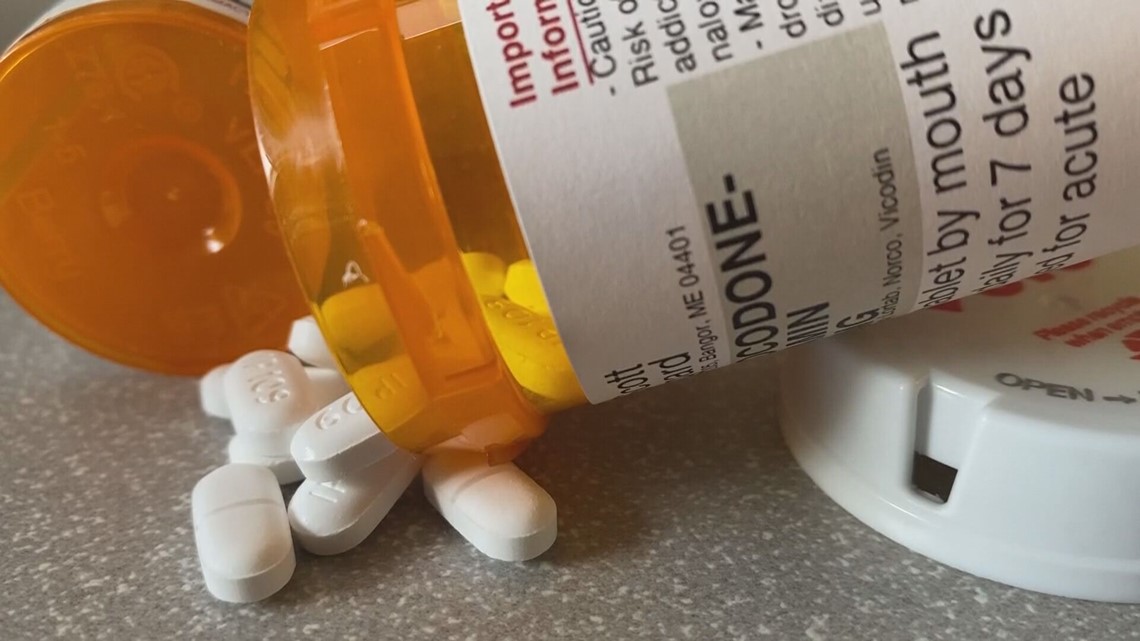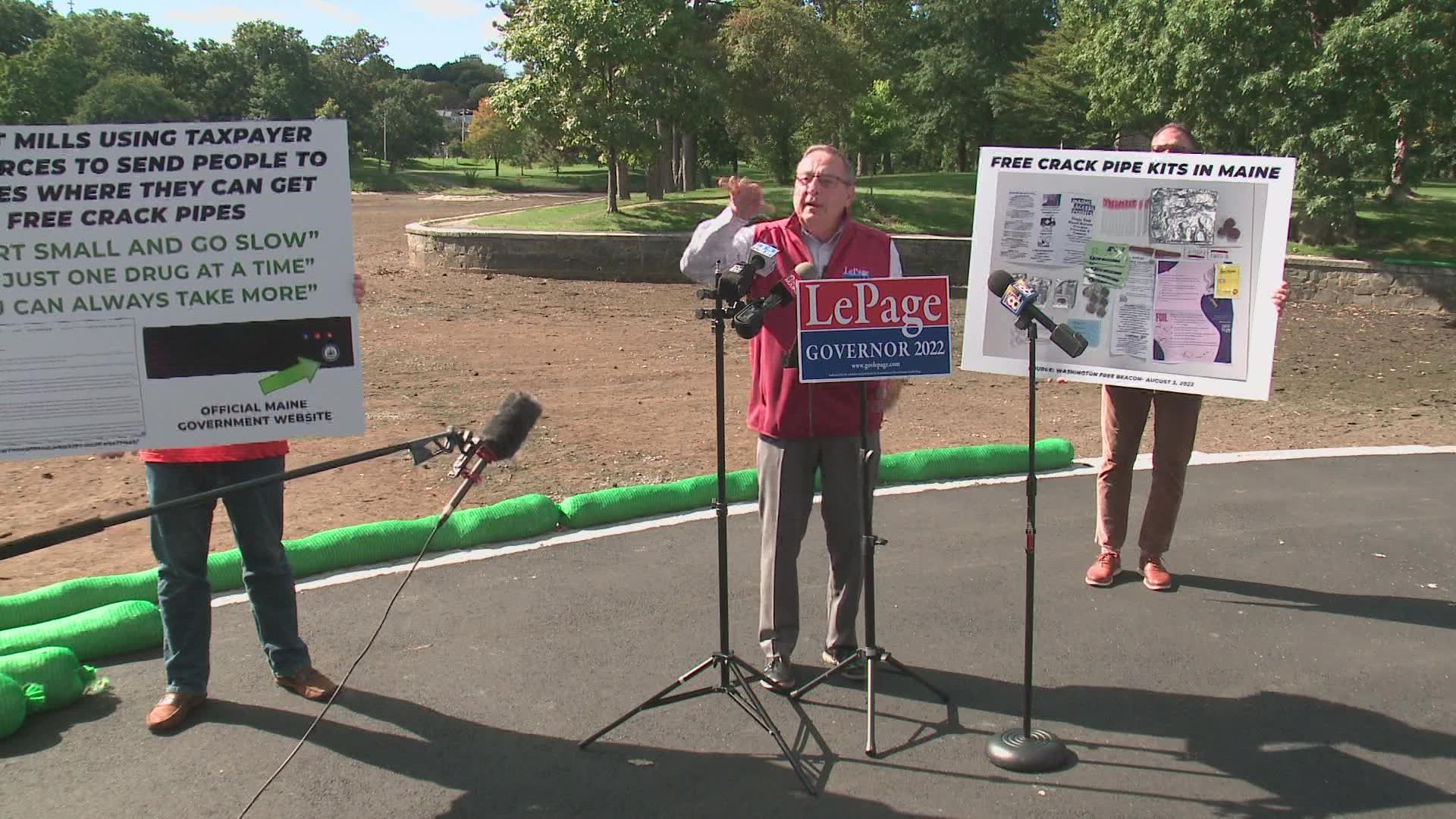PORTLAND, Maine — Former Gov. Paul LePage on Wednesday said crime in Portland is out of control.
He is looking to win his old job back from incumbent Gov. Janet Mills, who LePage blames for the state's opioid epidemic.
LePage cited the Maine Drug Data Hub, which tracks overdose statistics in the state. From January 2021 to July 2022, More than 15,000 overdoses were reported in the state during that time period.
“As a brother with siblings who struggle with substance abuse, I understand the need to try to help people recover from addiction," LePage said.
LePage served Maine as governor from 2011-2019. On Wednesday, he criticized Mills for allocating state money to nonprofit organizations that promote the use of naloxone or Narcan and harm-reduction supplies.
A man with LePage's campaign held a poster with an alleged harm reduction supply kit in Maine that seemed to provide a pipe for smoking drugs like crack cocaine. The top of the poster read "Free Crack Pipe Kits in Maine."
“Janet Mills is using taxpayer money to send people to places where they can get free crack pipes," LePage said.
A spokesperson from Mills' office said harm reduction services, "including certified exchange programs," is a strategy strongly endorsed by the American Medical Association.
The evidence of "the free crack pipe kits" was cited from a Washington Free Beacon article. The piece stated two organizations, The Church of Safe Injection and Maine Access Points, include these pipes in their harm reduction kits.
NEWS CENTER Maine reached out to those organizations for comment but didn't hear back.
“Harm reduction is a valuable resource in our community, and they are decreasing the numbers of HIV and hepatitis regardless of the harm reduction supplies they’re passing out," Courtney Gary-Allen, policy director of the Maine Recovery Advocacy Project, said.
Gary-Allen said she noticed a shift in perspective and recovery support under the Mills administration.
“[After election day], whoever is in office, really determines everything when it comes to the recovery community in Maine," she said.
At the press conference, LePage further revealed his mixed feelings about Narcan. He said he supports using it to save the life of someone currently overdosing but thinks people should be charged for using Narcan after their first overdose.
“I am hostile to it because I look at Narcan as a method of sustaining life and extending life. I don’t see it as a way of fixing the program," he said.


Mills' spokesperson added, "As a result of the governor's efforts, in particular, the distribution of naloxone, today, 93 percent of people in Maine who experience an overdose survive."
The opioid crisis has also required more response from law enforcement and has helped highlight staffing issues between departments all over the state. LePage said the detox system in Maine's jails and prisons needs to be upgraded.
The former governor said Mills used funds intended to improve the recovery system at the Maine Correctional Center in Windham to build "a new library" and a "school."
NEWS CENTER Maine toured the new prison last week. The current project had to scale back operations after it came in nearly $75 million over budget. LePage said wanted to build a 200-bed detox center at the facility.
Maine Department of Corrections Commissioner Randall Liberty said last week the DOC is committed to giving residents a second chance in their life regardless of any mental or substance use issue they deal with.
"We know that people arrive here with mental health issues, substance use disorder, trauma, neglect, poverty, learning disabilities — all of those things," Commissioner Liberty said, later adding, "Our community is much safer when an individual is provided the opportunities to redeem themselves and go through a restorative justice program."
Simply put, LePage said to stop the opioid crisis is to "eradicate it."

